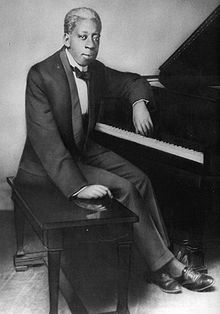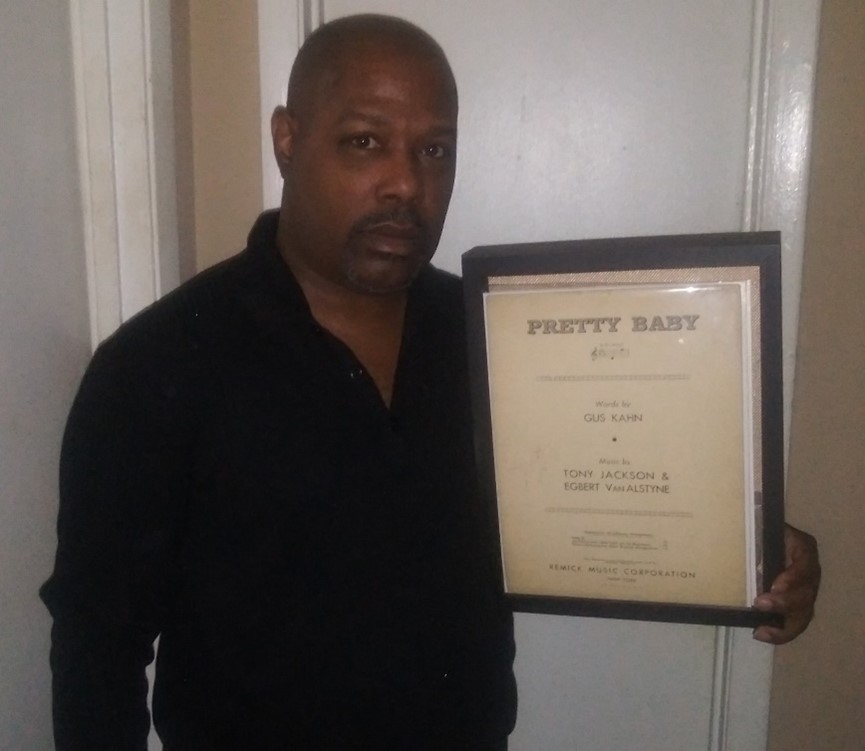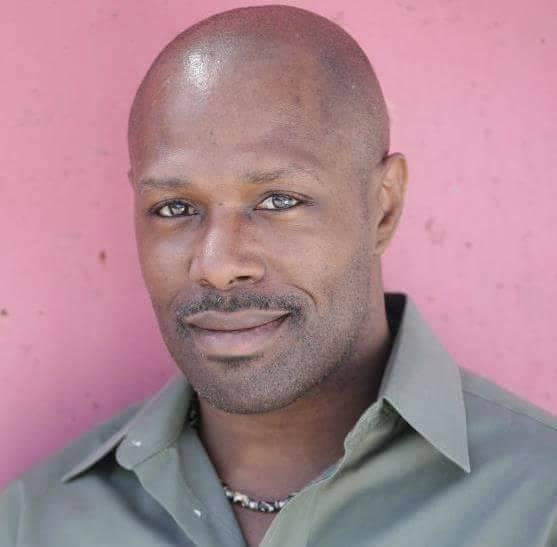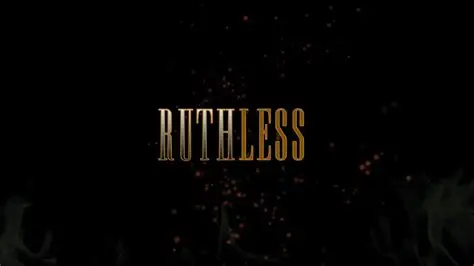“Pretty Baby”
Guest Writer: Bishop Hartsel Clifton Shirley
Throughout the Great Migration (1916-1970), roughly seven million Blacks from the southern United States traveled to the North, Midwest, and West to escape racism, seek work in manufacturing cities, and obtain better educational opportunities. Bronzeville, an area of Chicago near Hyde Park, attracted a Black gay population—which snowballed.
The relative sexual liberation in places such as Bronzeville allowed for intimate same-sex relationships. These liaisons were generally accepted by the neighborhood powers that be, as well as the public. Pianist/singer/songwriter Tony Jackson was one of the many gay people who left the South to take full advantage of Chicago’s sexual freedom.
Antonio Junius “Tony” Jackson (October 25, 1882 – April 20, 1921) was a Black pianist, singer, and composer. Born poor in New Orleans, Louisiana, Jackson had a twin (Prince Albert); unfortunately, his brother died when he was only 14 months old.

Jackson displayed musical talent at an early age. When he was 10, he created a simple and properly tuned harpsichord out of junk in his backyard. Since his folks didn’t have money to buy or rent a piano, that was an example of his incredible ingenuity. On this make-shift instrument, the budding talent was able to duplicate hymns he’d heard in church. Word of this feat spread fast, and neighbors gave him the use of their pianos and reed organs on which to practice.
When he was 13, Jackson got his first musical job, playing piano during off-hours at a honky-tonk operated by bandleader Adam Olivier. And at only age 15, many musicians considered him the best pianist in town. Jackson ended up being the most prevalent and preferred entertainer in Storyville, a section of New Orleans that was one of the most famous red-light districts in the U.S. Between 1897-1917, prostitution was effectively legal in Storyville.
Legend has it that this talent could recall and play any song he had heard. He was rarely confused by ambiguous musical requests. Jackson’s performances were comprised of ragtime, blues, light classics, and the current songs of the day from America and many Latin American and European countries.
One of Jackson’s show-stopping tricks was to dance a high-kicking cakewalk while playing the piano. His voice was extraordinary, and he was able to sing operatic parts from baritone to the soprano range.
Jackson is often regarded as the link between the genres of blues and jazz. Many even go so far as to tout him as “single-handedly, the greatest entertainer in the world.” His contemporaries echoed their admiration, calling him “the greatest,” and even as arrogant as Jelly Roll Morton was, he spoke of Jackson as the only musician better than Morton himself.
Jackson wrote countless original tunes, many of which he sold rights to for a few dollars. And unfortunately, other music artists of the time stole his songs. New Orleans musicians said that Jackson wrote many well-known Tin Pan Alley pop songs of his era. Clarence Williams, the jazz pianist and composer, noted, “He was great because he was original in all his improvisations . . . we all copied him.”
As well, Jackson’s individualistic style of dress was imitated. For instance, he’d sport a pearl-gray derby, checkered vest, ascot tie with a diamond stickpin–and sleeve garters on his arms to hold up his cuffs as he played. This style of dress became an everyday outfit for ragtime and barrelhouse pianists. It was remarked, “If you can’t play like Tony Jackson, at least you can look like him.”

Hartsel with “Pretty Baby” sheet music
Even with his fame, Jackson complained about gay life in New Orleans. In the search to be his authentic self, the musician moved to Chicago in 1912. However though, before he got to the Windy City, he resided in Louisville, Kentucky, and met one of the foremost pianists there: Glover Compton, with whom he had a long-term friendship.
One of the few published songs with Jackson’s name on it, “Pretty Baby,” was published in 1916, although he performed that song for a few years before leaving New Orleans. (Between 1916-1920, he published nine.) The original lyrics of “Pretty Baby” referred to his male lover of the time. Jackson never spoke about his sexual preference openly.
Songwriters Gus Kahn and Egbert Van Alsine heard Jackson performing “Pretty Baby” one evening and offered to buy it from him for $250. Gus rewrote the lyrics, with Egbert adding a verse from a song he’d previously written. “Pretty Baby” was published with Jackson’s name on the sheet music. The song was quickly inserted into the Broadway show, “A World of Pleasure,” and recorded by many singers such as Dean Martin, Doris Day, and Brenda Lee.
The song was also used in several movies, including one titled Pretty Baby in 1978, based on Jackson’s “Pretty Baby” and starred Brooke Shields and Antonio Fargas, with the song performed by Fargas.
Being a heavy drinker, cirrhosis of the liver got the best of Jackson, and he died in his apartment on April 20, 1921, at age 38.
Tony Jackson’s piano rolls can be overheard today. His influence is evident in the music of younger musicians he influenced, such as Jelly Roll Morton, Clarence Williams, and Steve Lewis. In 2011, the Chicago Gay and Lesbian Hall of Fame hailed Jackson as they celebrated entering his name into the hall. Antonio Junius “Tony” Jackson was honored for his musical contributions and living “as an openly gay man when that was rare.”
I invite you to listen to a rendition of Tony Jackson’s “Pretty Baby”(lyrics altered, and indeed NOT Tony Jackson’s voice):
And an instrumental song, “I’m Cert’ny Gonna See ’bout That”:

Bishop Hartsel Clifton Shirley is an author, writer, singer/songwriter, and bishop from Waterloo, Iowa. He received his master’s degree in business from the International Business Management Institute based in Berlin, Germany.
Currently residing in Atlanta, Mr. Shirley is a bishop of National and International Social Action, part of New Direction Overcomers’ International Fellowship (based in Richmond, Virginia).
A multi-faceted talent, Hartsel is a writer, author, and singer/songwriter. A bronze prize winner of the International Society of Poets, he has penned editorials for the Waterloo/Cedar Falls Courier. His best-selling novel is entitled Three Words, Four Letters, published by Ishai Books. Additionally, Hartsel has charted at #1 several times on the ReverbNation pop music charts.
Inspired by Langston Hughes, Bishop Shirley states, “I write what moves me.
There is nothing I can’t write. I just have to care about it so I can write truthfully.”
According to Hartsel, his current book, The Night Eddie Sallis Died, is based on factual information he uncovered in 2002 about a 1966 jail cell “suicide” in Waterloo, Iowa (his place of birth). This revealing and riveting book pulls back the curtain on racism and police brutality. The author emphasizes, “These truths make Iowa a state not to be taken lightly–nor forget.”
Hartsel’s upcoming works include Three Words and Four Letters–the second and third installments of his first novel–along with his third music project, Rebel with A Cause.
Bishop Shirley can be emailed at [email protected]





Thank you for that blast from the past. I had no idea. Your column never disappoints. Looking forward to the next one.
Wow!!! Thanks sooooo much!-